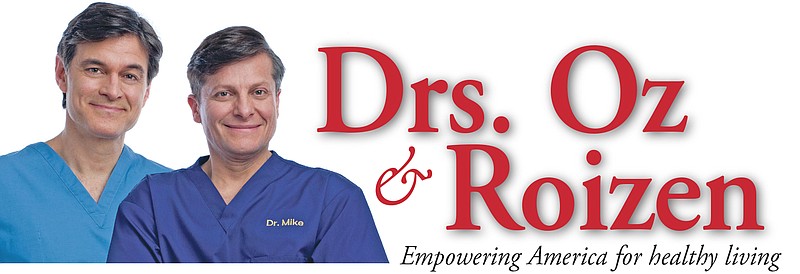In 2018, Calvin Klein's creative director Raf Simons held a fashion show dedicated to raising awareness of a controversial disease called multiple chemical sensitivity. And while that seems a bit odd (models were swathed in multi-layered protective gear), there's no doubt, according to Johns Hopkins Medicine, that folks do have troubling reactions to various chemicals they encounter in everyday items such as carpeting, plastics, perfumes, paint and cigarette smoke. The symptoms include rashes, headaches, confusion, memory loss, breathing difficulties, asthma, fatigue and muscle and joint pain.
One recent study of people in the U.K., the U.S., Australia and Sweden found 19.9% of those populations report having a chemical sensitivity and 32.2% report fragrance sensitivity, while 7.4% have medically diagnosed MCS. And a 2018 study in the Journal of Occupational and Environmental Medicine says there is evidence that MCS is widespread and increasing in the U.S.: An estimated 25.6 million adults are diagnosed with MCS, and an estimated 51.8 million adults say they have chemical sensitivity. This is an increase of 300% in diagnosed MCS cases and a 200% increase in self-reported chemical sensitivity in a little more than 10 years.
Increased awareness is not the only reason for the jump in the numbers. An increase of pollutants in air, water, food and soil is also a factor, and with the unraveling of the EPA regulations that offer some protection, we can expect even more people to develop such sensitivities.
Increasing diagnosis and treatment
A lot of people are not getting diagnosis or treatment for multiple chemical sensitivity - in part because many doctors and patients don't go through the complicated process required to figure out what is causing bewildering symptoms. But now researchers at the University of Texas Health Science Center at San Antonio have designed a three-question, yes-no survey - the Brief Environmental Exposure and Sensitivity Inventory - that can help your doctor determine if multiple chemical sensitivity is causing your symptoms. It's a breeze to take!
BREESI focuses on three exposure categories: 1) chemical inhalants, such as tobacco smoke, certain fragrances, engine exhaust, air fresheners, pesticides and new carpet or furnishings; 2) drugs and medications, such as antibiotics, anesthetics and pain relievers; and 3) foods and food additives, such as dairy products, wheat, corn, eggs, MSG and dyes.
If you say yes to all three questions, the researchers say there's a 90% likelihood that a chemical intolerance is causing your symptoms, not some other medical condition. Then you and your doctor can work to pinpoint the triggers, control symptoms and decrease or eliminate your exposure. That's a breath of fresh air!
So here's the quiz. Answer these three questions "yes" or "no":
1. Do you feel sick when you are exposed to tobacco smoke, certain fragrances, nail polish/remover, engine exhaust, gasoline, air fresheners, pesticides, paint/thinner, fresh tar or asphalt, cleaning supplies, new carpet or furnishings? By sick we mean: headache, difficulty thinking, difficulty breathing, weakness, dizziness, upset stomach, etc.
2. Are you unable to tolerate or do you have adverse or allergic reactions to any drugs or medications (such as antibiotics, anesthetics, pain relievers, X-ray contrast dye, vaccines or birth control pills), or to an implant, prosthesis, contraceptive chemical or device, or other medical/surgical/dental material or procedure?
3. Are you unable to tolerate or do you have adverse reactions to any foods such as dairy products, wheat, corn, eggs, caffeine, alcoholic beverages or food additives (e.g., MSG, food dye)?
If you say yes to the three questions in the BREESI quiz, it's time for your doctor to give you the QEESI (don't get queasy) test, which can drill down to specifics very effectively. QEESI is a validated 50-item questionnaire used worldwide to assess chemical intolerance. To learn more about chemical intolerance's underlying disease process (Toxicant-Induced Loss of Tolerance) and the QEESI test, visit www.TILTresearch.org. If you identify your multiple chemical intolerances, relief is possible.
Mehmet Oz, M.D. is host of "The Dr. Oz Show," and Mike Roizen, M.D. is Chief Wellness Officer Emeritus at Cleveland Clinic. To live your healthiest, tune into "The Dr. Oz Show" or visit sharecare.com.
(c)2020 Michael Roizen, M.D.
and Mehmet Oz, M.D.
King Features Syndicate

